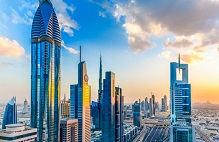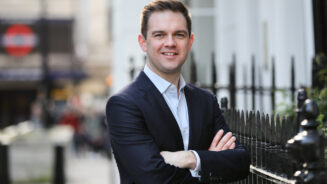What about Arab investors, as that is a distinct group in terms of the funds they are interested in?
It is still challenging to persuade Arab investors to move into global mutual funds but regional Arab money that was looking like it was transient as a result of the Arab Spring is now migrating more into longer-term vehicles than it was before.
The effects of the Arab Spring are now turning into a much longer-term scenario; the cash that was moved to, say, Dubai, Abu Dhabi or Doha is now moving into something longer term.
The other trend of the past two years is that risk is back on the table, and there is a sense that global markets over the long term will return an appetite for risk. People have been focusing on the eurozone or China in the past year or two.
Are you planning to offer Islamic products in the near future?
It is interesting that we have not seen an upsurge in Islamic asset management that might have been predicted.
Our capacity for doing that is greater now. Within our offshore product range we have share classes on demand, so we can tailor our product more to the needs of the local marketplace, whether that is in terms of hedging, local currency or any other investment guideline.
Whether we offer an Islamic product will depend on whether we think there is a strong opportunity for us to do so. I have not yet seen that level of demand from the local marketplace but that could change if a local bank approached us.
How do you feel about the way in which regulation is evolving in the Middle East?
There is a long way to go in terms of the advisory landscape in the region. What still troubles me is the debate over soft commission, and our position is unchanged on that. We need to focus on helping investors better understand the regulatory environment. We welcome the direction of travel but things are still fragmented.
How would you characterise the Dubai financial services market now and any initiatives Invesco is embarking on in the near future?
In the past three years the environment has become much more mature. It feels more like a typical international financial centre. With eight people there, we now have the right number of people, and we are one of the larger asset managers. The team is all client-facing, spread evenly between retail and institutional.
It is good for us as a global business because there is an opportunity to put people into an environment like the Middle East and make sure we have the right talent flowing through the region all the time.
The Middle East is now one of Invesco’s largest marketplaces globally.
We will be monitoring our brand tracking in the second half of the year. Then, as we go into the new year, we will have done 10 years in the DIFC (Dubai International Financial Centre) so we will be having a particularly large annual investment event where we will not only look at global investment trends for our clients but at trends in the Middle East. So expect to hear more from us.




